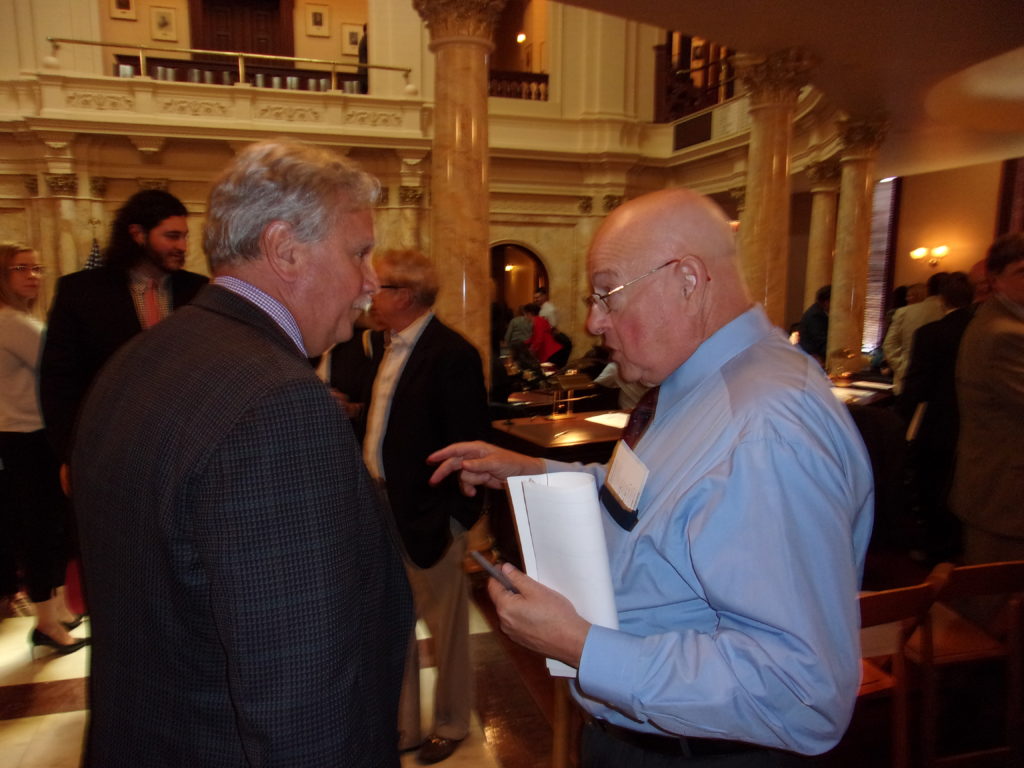Sierra Club: Today’s Gas Tax Increase Shows We’re Using Less Gasoline

Today’s Gas Tax Increase Shows We’re Using Less Gasoline
Today the gas tax in New Jersey will be raised by 4.3 cents per gallon on Oct. 1st. This is because less gas is being sold in New Jersey than before. In the 2016 election, New Jersey citizens voted down a constitutional requirement that all revenue derived from taxes on motor fuels be deposited into the Transportation Trust Fund (TTF). The problem with that deal is that it would’ve raise the gas tax at the expense of the middle class of New Jersey by tying a gas tax to cutting estate taxes and lowering the sales tax. It’s important that now we are raising the gas tax without tying it to any other measures that will hurt the people of New Jersey.
This increase in the gas tax is necessary because people are driving less and buying less gasoline. This trend will continue for multiple reasons, one being because the Trump Administration is causing the price of gas to rise. We need to transition to more public transportation and carbon-free transportation such as electric vehicles to further reduce our fossil fuel use and greenhouse gas emissions. With the Trump Administration siding with polluters over public health or the environment, it’s more important than ever for New Jersey to make our own transition to a green economy. We must work to reduce our greenhouse gasses and reliance on fossil fuels while creating green jobs in the solar and wind fields,” said Jeff Tittel, Director of the New Jersey Sierra Club. “We need to build public transport for the good of the public as well as the environment and instituting a gas tax will help to do that.”
The Trump Administration has been attacking the Corporate Average Fuel Economy (CAFÉ) standards and are seeking to get rid of California’s Waiver authority to regulate greenhouse gas emissions for automobiles. The National Highway Traffic Safety Administration (NHTSA) and the Environmental Protection Agency (EPA) are proposing the “Safer Affordable Fuel-Efficient (SAFE) Vehicles Rule for Model Years 2021-2026 Passenger Cars and Light Trucks”. This new rule will break decades of precedent guaranteeing California’s right under the Clean Air Act to set its own air pollution standards. The rule will also cap federal fuel economy requirements at the 2020 level, which under federal law must be at least a 35-mile-per gallon fleet average, rather than letting them rise to roughly 50 mpg by 2025.
“The Trump Administration wants us to waste gasoline to continue to raise the prices. This is even more incentive to move towards cleaner vehicles. One of the big impacts of their roll backs of the CAFE standards will cost us more at the pump. If cars are less efficient, it will force us to buy more gasoline while raising the price. This will be a double whammy on our wallets. It will cost the average driver $3,000 and the average light truck $4,000 for fuel,” said Tittel. “Trump is also trying to block a California waiver from 1992 that has saved many lives and prevented air pollution across the country and in New Jersey. The Trump Administration is siding with Big Oil over up-dated technology and public health.”
According to the American Lung Association, every year, pollution from passenger vehicles collectively costs the 10 ZEV states about $24 billion in health, including 220,000 lost work days, 109,000 asthma exacerbations, hundreds of thousands of other respiratory health impacts, and 2,580 premature deaths. A fully electric vehicle uses electricity to power a battery. This means no gasoline, no dirty oil changes, and no internal combustion engine. In New Jersey, the Zero Electric Vehicle (ZEV) program saves our state $4.6 billion in health care costs associated with smog and soot pollution caused by passenger vehicles.
“The Murphy Administration must do more to invest in electric vehicles and other fuel-efficient vehicles in New Jersey. They have yet to unveil a plan for how to spend the money from the Volkswagen settlement. We need to move forward with important legislation to promote EVs including establishing the right-to-charge or creating a network of charging stations throughout the state. Without these steps, we won’t be able to make electric vehicles a reality. Without increasing electric vehicles, we won’t be able to reduce our air pollution enough and will still depend on fossil fuels like gasoline,” said Jeff Tittel.
The Murphy Administration needs to invest in saving NJ Transit from the mess it has become to get more people and cars off the road. Not only must we fund the Transportation Trust Fund, but we must be sure we are doing everything possible to secure federal funding. New Jersey has the worst smog and air pollution in the nation from car and truck pollution. Public transportation can help us get cars off the road and reduce air pollution and greenhouse gasses.
“We need to move forward with clean vehicles because the gas tax will only continue to rise. The people have shown that we want cleaner fuels and a greener economy. Now we need to put the pressure on our elected officials to make it happen. We must continue to pressure the Murphy Administration to uphold their commitment to 100% renewable energy by 2050. This means not giving subsidies to nuclear power or limiting the amount of solar and wind energy we can create in our state,” said Jeff Tittel, Director of the New Jersey Sierra Club. “We must do more to reduce our state’s carbon output and fossil fuel consumption. New Jersey has the worst smog in the nation and we should be promoting public transportation as a way to reduce our impact on climate change. The failure to have good and reliable public transit is bad for the environment because it will out more people in cars and increase pollution.”





